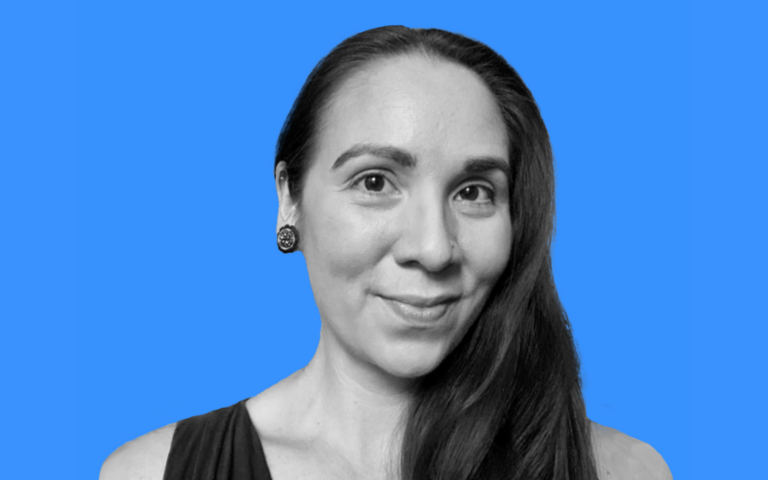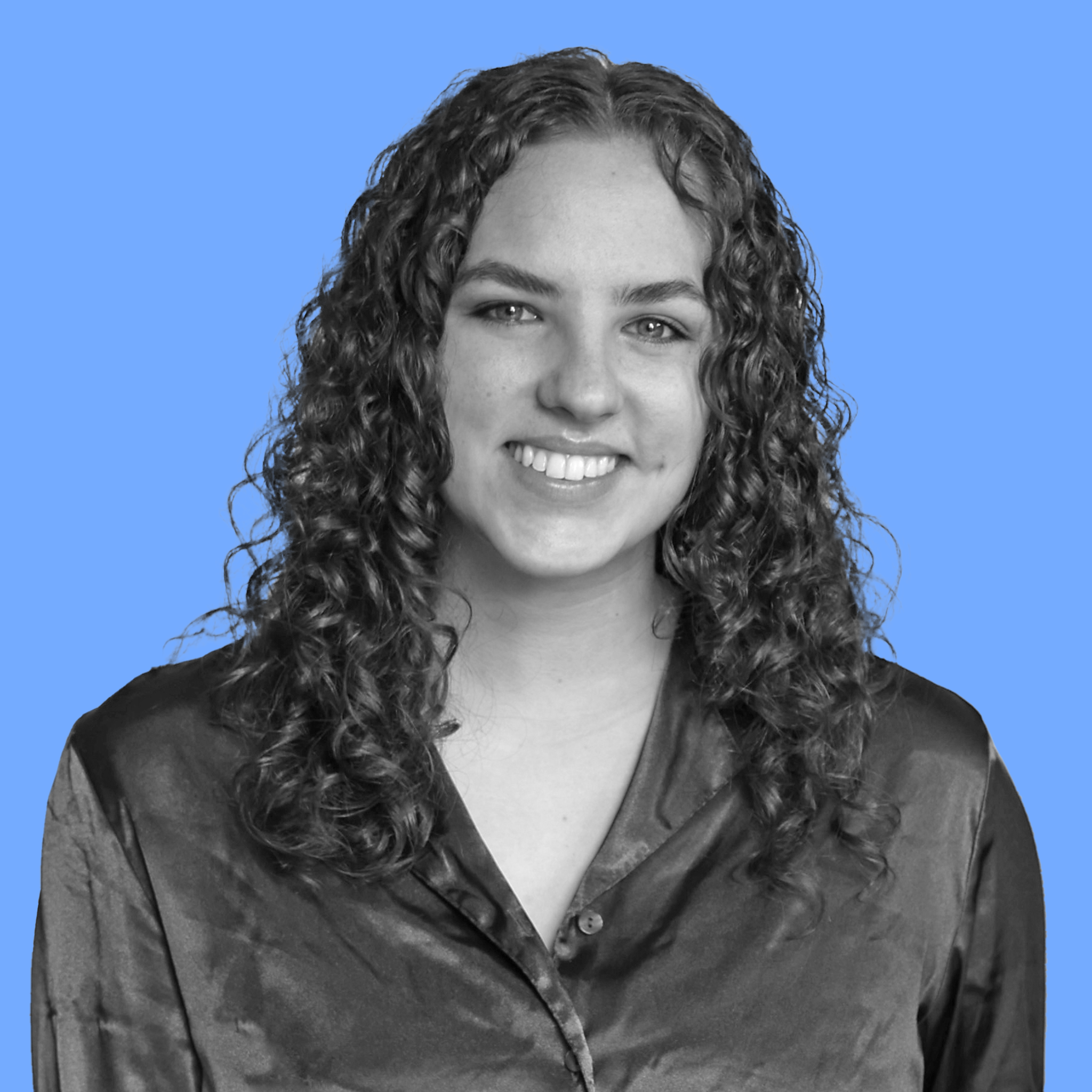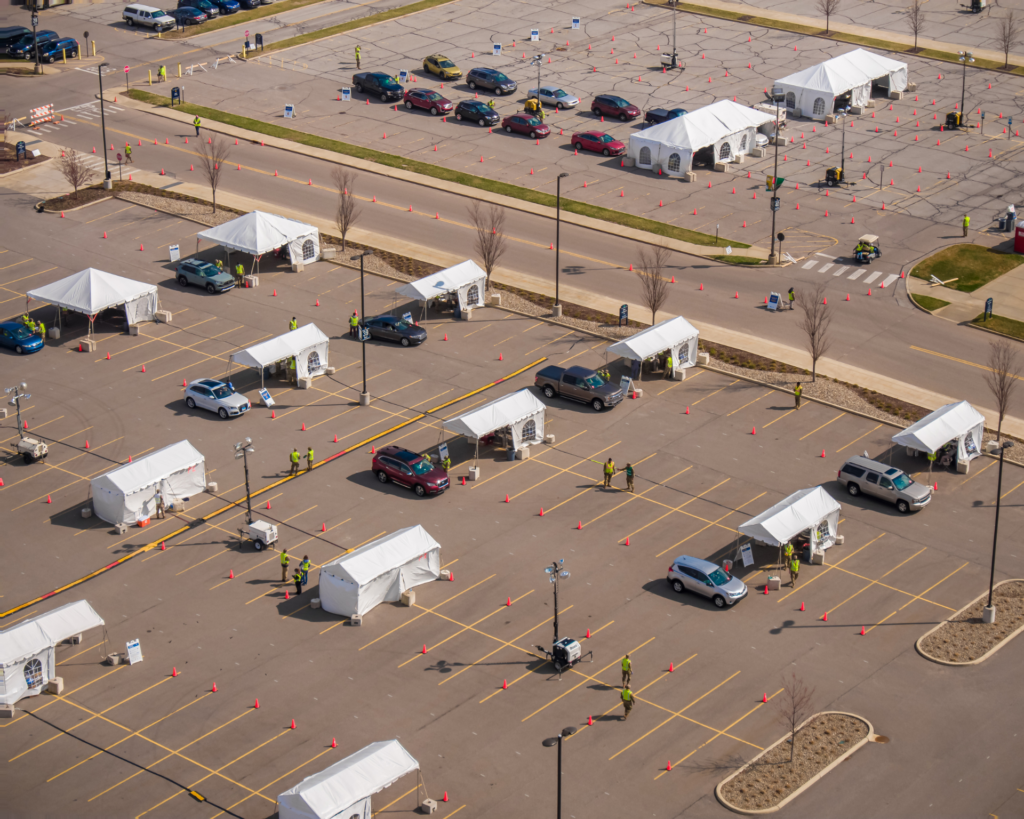Janelle Palacios
Janelle Palacios, nurse midwife, researcher, and founder of Encoded 4 Story, uses storytelling to improve health outcomes for Indigenous women.

Read Time: 4 minutes
Published:
Janelle Palacios is a nurse midwife, researcher, lecturer, and storyteller. She works to improve maternal and child health outcomes for rural Indigenous women by using storytelling and partnering with various national programs and organizations, including her consulting organization, Encoded 4 Story.
“The best I could do was hold her hand, hug her, and walk in silence with her,” Janelle Palacios recalls as she reflects on the moment it clicked for her while walking home from a friend’s tribal health clinic appointment. The moment she recognized that women in her community didn’t have the power to report being violated and were shamed by the providers in the Indian Health Service Clinic for becoming pregnant as teenagers. She had heard and watched how the community, especially the non-Native community, interacted with pregnant teens who were gravely impacted by racism, historical trauma, and adverse childhood experiences.
Palacios grew up on the Flathead Indian Reservation among her Salish and Kootenai roots in a multi-generational household, with poverty and a single teenage mother. She says her mission became clear to her early on: “To change how women were treated, to change how Native women and families experienced health, and to thrive.”
Palacios went on to become a nurse midwife and scientist and says that leaving the reservation she grew up on opened her eyes to the effects of intergenerational trauma on Indigenous families and communities. Communities that, she learned, historically “did not [always] have the resources to heal.” She received her PhD and began to study teen pregnancy and early parenting through the lens of Native-American culture, expectations, and experiences, and the perspective of historical trauma and weathering.
Since then, Palacios’ work has evolved to provide safe spaces for women to tell their stories about motherhood and to use stories to improve maternal and child health outcomes. She founded Encoded 4 Story, a consulting firm dedicated to storytelling, training, and health equity consultation to improve health. Storytelling, according to Palacios, is both an intervention and a method, allowing data to be humanized by capturing lived experiences.
Storytelling, she affirms, “can be a vehicle to change people’s hearts, minds, and actions” simply by starting conversations.
Palacios recognizes that listening to women tell their stories is a privilege and allows people to speak openly about their experiences, even when they are traumatic. “For many storytellers, sharing their story – often for the first time – can be healing,” Palacios says. Sharing stories, she highlights, allows women to realize that they weren’t at fault for what happened to them, although they may have been “carrying guilt and shame for events that have happened in their lives.”
Palacios believes that storytelling highlights that the responsibility for health outcomes should not rest solely on individuals but must be a collective effort shared by the community. She recognizes that her intention of bringing community into the spaces in which she works is an “Indigenous perspective of health and well-being,” for the health of the community is reflected in an individual’s health. Her work encourages a community of people to take charge because, she says, “we are all healthy when our community is healthy.”
“We’re all storytellers,” Palacios says. “Everyone has the capacity to be a storyteller.” Women’s voices are rarely heard, and “storytelling allows women to share their lived experiences.” Palacios believes that “storytelling is a vehicle to allow stories to come forward and be shared at a special time, place, and with an audience that can inspire change. It can change how people view a topic. It can change their actions thereafter.” Storytelling can help “achieve health equity, reproductive health equity, birth justice, and thriving families and communities,” she says.
For those interested in practicing storytelling, Palacios recommends starting to interact with others’ stories. StoryCenter, an online resource, and The Moth, a podcast series, are two of her favorite resources to listen to and learn from others’ stories. Palacios then recommends starting to share your own story. Storytelling, she affirms, “can be a vehicle to change people’s hearts, minds, and actions” simply by starting conversations.
Palacios spoke more about her work at Boston University School of Public Health’s Public Health Conversation, A Vote for Health: Reproductive Rights. Revisit the conversation here.



